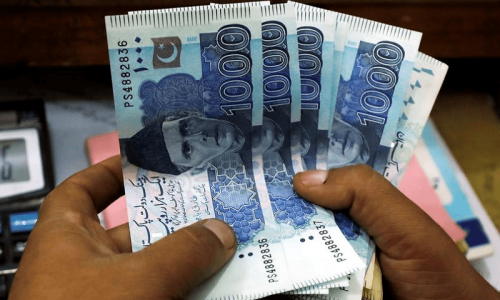Tariff increases for KE consumers merged with Discos

As part of its last week in office, the PMLN-led coalition government approved merging quarterly tariff increases for K-Electric with other distribution companies (Discos) to recover an additional cost of Rs4 per unit worth Rs145 billion for the July-September billing period. In addition, the Gulf Cooperation Council (GCC) has agreed to amend the power transmission policy to expedite investments through government-to-government (G2G) negotiations.
Finance Minister Ishaq Dar presided over a meeting of the Economic Coordination Committee (ECC) of the Cabinet that took the decisions.
As part of the quarterly tariff adjustment (QTA), the ex-Wapda distribution companies (Discos) have already requested an additional amount of Rs145bn from their customers for the period April-June through upcoming billing months. In response to a request from the Power Division, the ECC approved policy directions for the National Electric Power Regulatory Authority (Nepra) to apply the same uniformity request to past outstanding QTAs for KE consumers. Disco’s hearing request has already been scheduled for Aug 23 by Nepra.
According to Nepra’s previous determinations, the Power Division requested implementation of Rs4.45 per unit quarterly adjustment for consumers of KE for the first quarter of 2022-23 (July to September) and Rs1.55 per unit for the second quarter of 2021-22 (October to December). In spite of this, the Nepra had refused to allow these increases on technical grounds and noted they could only be allowed with clear federal policy guidelines.
The ECC approved tariff rationalisation for K-Electric by way of adjustments that will apply to April, May, and June consumption to be recovered from consumers in three months (July, August, September).
ECC approved guidelines under which “Nepra shall determine the application of QTAs of ex-DISCOs on KE consumers…with the same application period, keeping in mind the financial viability of the sector and the uniform tariff policy of the federal government”.
A summary of the proposal of the Ministry of Energy for amending Transmission Line Policy 2015 (TL Policy 2015) to include ancillary services projects in its scope was also approved by the ECC on the instructions of the Special Investment Facilitation Council (SIFC) – a supra-governmental body of civil and military leadership.
According to the meeting, SIFC directed the Power Division to process 10 projects in the power sector for investments from GCC countries, including the Saudi delegation’s upcoming visit.
New transmission lines, augmentation of existing infrastructure like line bay expansions at substations, grid stations, and the ancillary services required for system stability and reliability were among the projects in the transmission sector.
The ECC doubled the performance-based incentive for banks and other institutions from 50 paise to Rs1 per incremental dollar growth up to 5 percent, Rs2 per incremental dollar for growth exceeding 5 percent, and up to 10 percent over last year. The Sohni Dharti scheme now allows remitters of more than $50,000 to redeem points from the existing green, gold and platinum categories for remittances between $10,000 and $30,000.
A summary of the Ministry of Energy (Power Division) contract for the purchase of 104MW electricity from Tavanir of Iran was also reviewed by the ECC, which approved amendments to the contract with Tavanir concerning the extension of tariffs for the existing supply of 104MW (Jackigur-Mand) until December 31, 2024.
